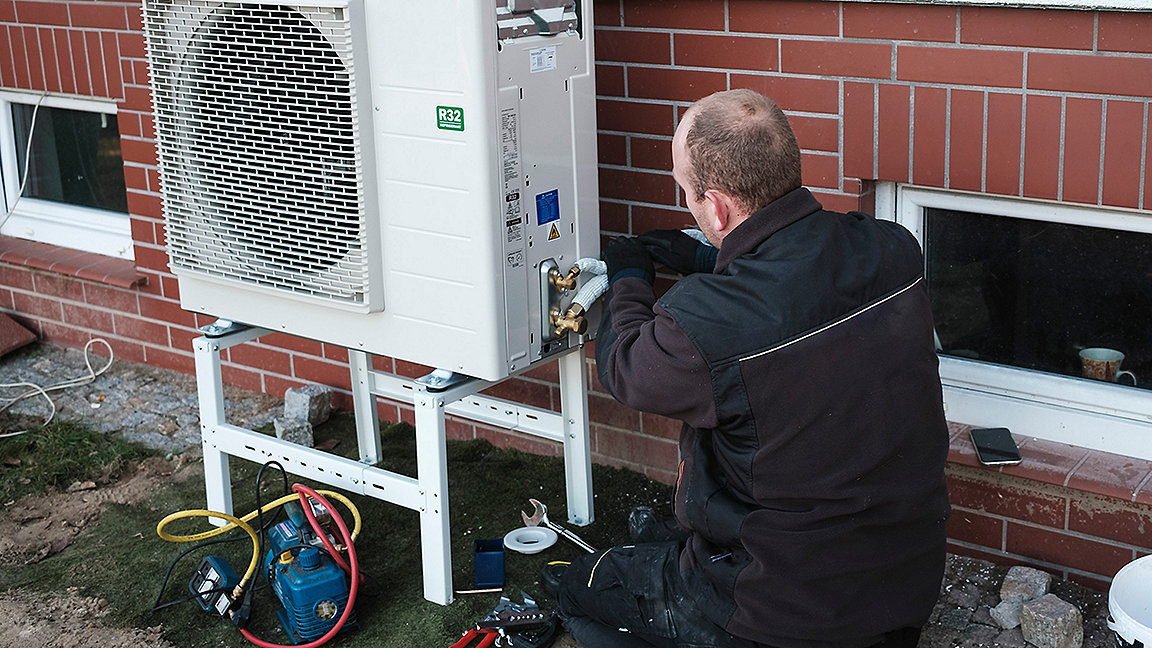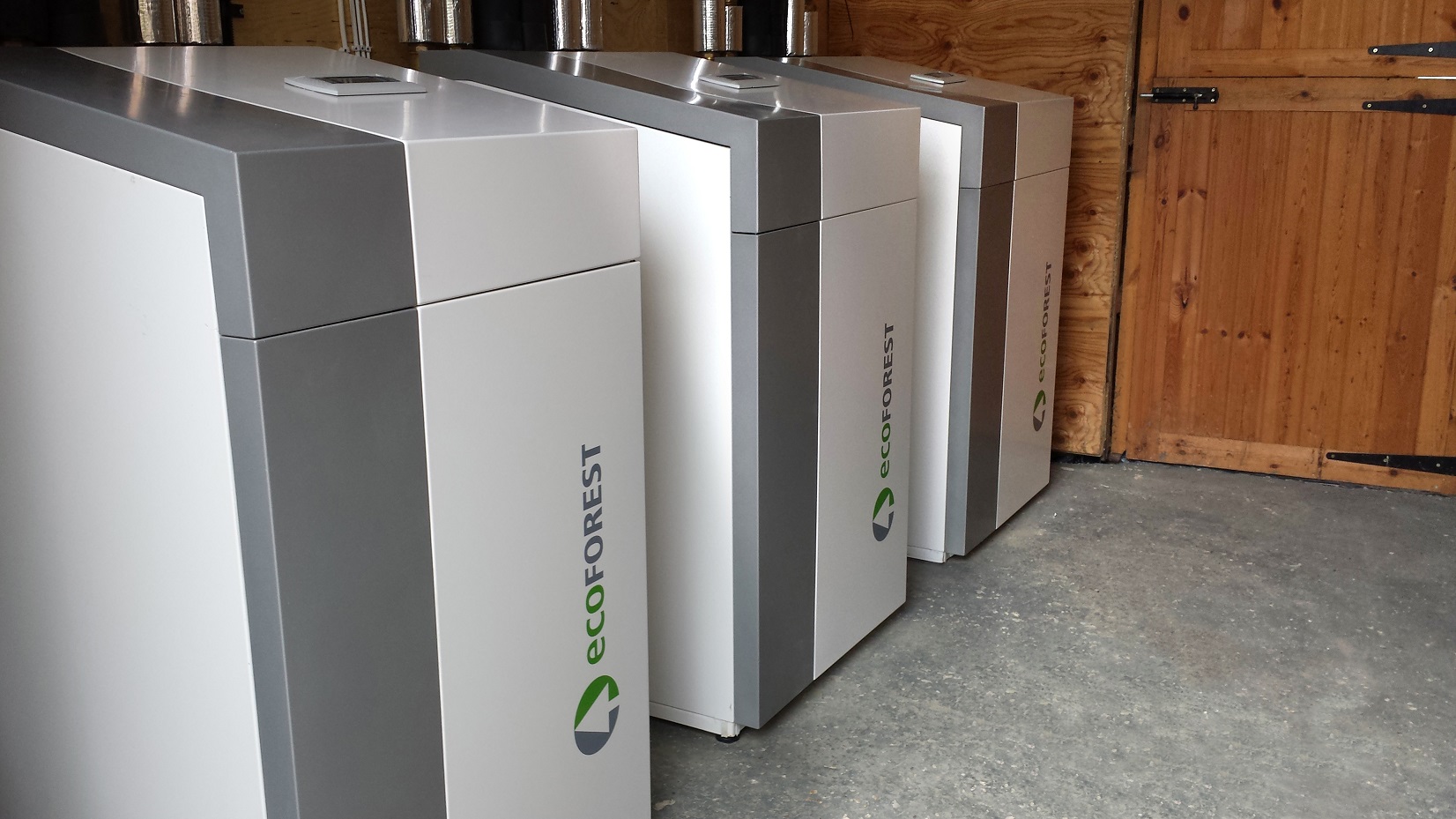
The UK's building stock is among the oldest and least energy-efficient in Europe, and some 88% of homes are still heated by natural gas. Decarbonising heating is therefore essential in the UK's transition to net zero.
With energy markets thrown into volatility by Russia's invasion of Ukraine, and international agreements that will not currently limit global warming to 1.5°C, change is ever more urgent.
Much of the transformative technology that is needed already exists. What is required, however, is coherent, cogent policy.
BRE urges energy efficiency push
There is no getting away from the need for greater intervention by the UK government – and now is the time. Record gas prices and unprecedented energy bill support for households mean that the economic case for investment has never been so strong.
Added to this, investment will bring considerable opportunities for innovation, job creation and economic growth. If we act now, the UK – and the construction industry in particular – has a unique chance to show the way in this transition.
In Decarbonising heat in Britain's buildings, a report published in December, the Building Research Establishment (BRE) sets out how to make our buildings fit for 2050 and beyond.
This will involve improving their energy efficiency, to reduce costs for consumers and for the wider energy system. With UK homes having lower levels of insulation than many other countries, significant, effective intervention is required. The government must as a matter of urgency accelerate rollout of energy efficiency programmes.
Smart technology is also key and will increasingly allow consumers to use energy for heating flexibly at times of lower cost and lower carbon. The National Grid, for example, already provides data on the estimated carbon intensity of electricity generation in the UK up to 96 hours in advance, and this will increasingly inform the use of smart devices.
Again, policy interventions and market reforms are needed to accelerate this: the smart meter rollout, which is one part of this effort, has not proceeded at the pace originally hoped.
Heat pumps play vital role in transition
To ensure the long-term security of our energy system, enable market growth, create green jobs and mitigate price volatility, we need to move rapidly away from oil and gas heating.
There is extensive debate about the mix of technologies that might be used to heat our homes in 2050. Direct electric heating will play an important role, and there is significant discussion about the part clean hydrogen might play.
But BRE maintains that heat pumps are likely to be central to households' transition away from fossil fuels to clean energy – and they are already available. An estimated 59,000 were installed in the UK last year, according to the European Heat Pump Association (EHPA), a 40% increase on 2021.
We need to keep up that rate of growth if we're to hit the government's target for 600,000 to be installed by 2028. That is ambitious, given that the UK is far behind some similar European countries: France had 432,000 heat pumps installed last year, and Germany 236,000.
To this end, the government needs to make a major policy push to increase awareness of the technology among consumers and to scale up manufacturing and installation.
'Heat pumps are likely to be one of the main technologies in households' transition away from fossil fuels to clean energy'
Government must redouble policy effort
In 2020, the government set up a Green Jobs Task Force, which is concentrating on ensuring there are enough trained installers to meet the 600,000-installation target.
In 2021, the Heat and Buildings Strategy announced an obligation on manufacturers of fossil fuel boilers to sell a number of heat pumps proportional to their boiler sales in the UK in a given period.
We're still waiting for that obligation to become law: passing the Energy Bill, which includes this heat pump policy, is a stated priority for the new Department for Energy Security and Net Zero.
Similarly, the Treasury recognises that rebalancing levies between gas and electricity bills could make electric heating, including heat pumps, a more attractive choice. However, we are also waiting for policy action here as well.
Consideration needed for range of technologies
While the government's Boiler Upgrade Scheme also offers heat pump grants to homeowners and small businesses, it only plans to support 90,000 installations; and, as innovation agency Nesta found in its November assessment, early uptake has been slower than the industry and other stakeholders were anticipating. This might change with companies such as British Gas and Octopus launching heat pump offers that make use of the grant support.
Even so, the support offered by the scheme is largely intended for single-household hydronic heat pumps, which extract heat from the ground or air and transfer it to water, although some support for biomass is also available. One of themes of the BRE report is the need for policymakers to consider the wider range of heat pump technologies.
In smaller properties, for example, air-to-air heat pumps may be more cost-effective and practical than hydronic ones. In blocks of flats, communal systems may be a good choice.
The effectiveness of heat pumps in older, less well-insulated properties is also a topic of debate. BRE remains a strong advocate of the fabric-first approach, for the reasons explained above; nonetheless, recent government-funded field trials seem to show that heat pumps designed to provide heat at a higher temperature than a standard device, which can better meet the needs of homes with a higher fabric heat loss, are performing well.
Hybrid heat pumps – which tend to combine a pump with a gas boiler – may also be part of the mix. In this regard, BRE will be watching the Netherlands with interest: the country will be banning direct gas boiler replacements in most households from 2026, with its government anticipating 1m hybrid installations by 2030. The Netherlands also saw an 80% increase in heat pump sales from 2021 to 2022, according to the EHPA.
Whatever the role of hybrids, there is certainly a need for much greater field testing of the full range of heat-pump technologies. This will assess how these perform in different types of property for different households, so policymakers can set appropriate standards. Equally important will be large-scale field testing to provide consumers with data on how the technology will work in their homes.
Improving consumer awareness and testing capacity
In polling conducted for BRE's report, 62% of UK homeowners could not confidently explain how a heat pump works. Clearly, there is still also work to be done to improve consumer awareness of the technology if we are to fully engage the public in heat decarbonisation.
For example, many question the value of heat pumps given the carbon emissions that may be generated by making and fitting them across the country. However, as heating is such a large part of our day-to-day energy use, the operational emissions from our current fossil fuel heating systems are significantly greater than the embodied carbon associated with the manufacture and installation of low-carbon replacements.
Another sticking point for industry will come in the ongoing transition to UK Conformity Assessment (UKCA) from CE markings to certify heat pumps and other new technologies. Experience in the sector indicates that adopting new technologies could be hindered for years if testing capacity is not increased and reciprocal recognition of CE certification between the UK and EU is not permitted. In this area, policy uncertainty is delaying investment and progress.
Nevertheless, the government recently affirmed its commitment to ensuring the long-term security of the UK's energy system in the wake of volatile gas prices, soaring household bills, and the increasingly urgent climate emergency.
The range of heat pump technologies available represents a clear opportunity for UK industry to work closely with government to increase installation targets, consolidate standards, and boost consumer participation.
'There is still work to be done to improve consumer awareness of the technology if we are to fully engage the public in heat decarbonisation'

